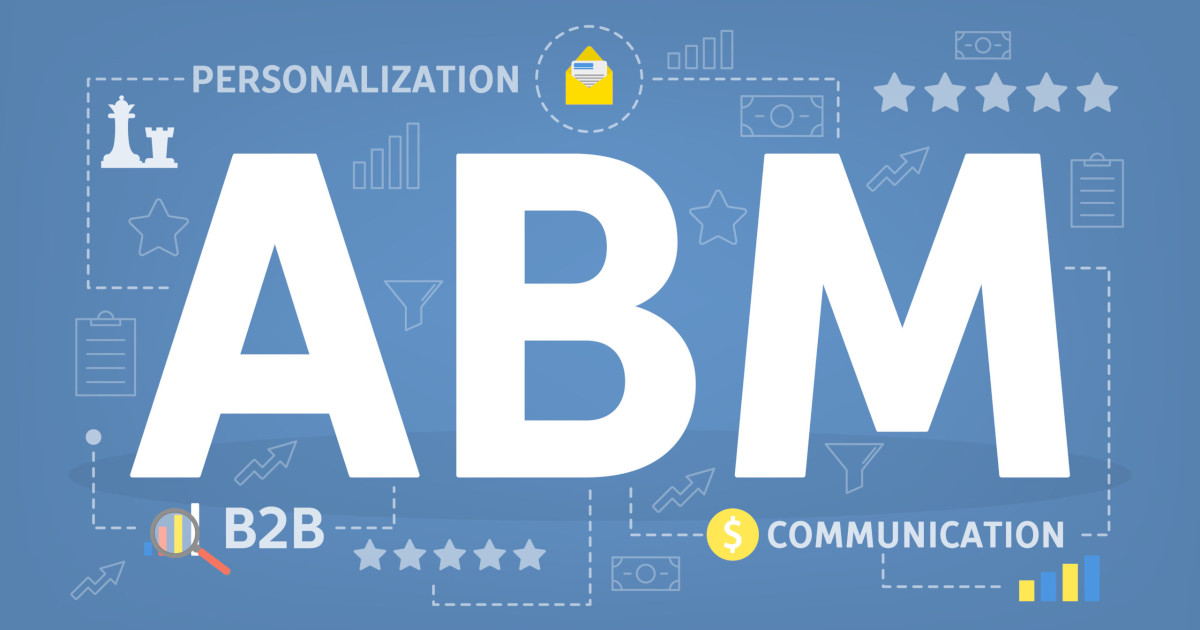ABM Account Based Marketing

Why ABM is Pivotal to B2B Lead Generation and Long-Term Growth
In an age where personalized content is king and competition is fierce, adopting innovative marketing strategies becomes imperative. Account-Based Marketing (ABM), a strategic approach that tailors engagement to specific accounts, has become a linchpin in successful B2B lead generation strategies. This article delves into the profundities of ABM and elaborates on why it’s considered an essential component in B2B marketing realms.
Defining ABM: A Targeted Approach
Account-Based Marketing is a focused growth strategy in which marketing and sales teams work cohesively to create a personalized buying experience for a mutually-identified set of high-value accounts. In ABM, traditional funnel approaches are flipped: marketing initiatives are specifically tailored to target particular organizations or accounts, addressing the needs and pain points pertinent to each.
1. Personalization at Its Best
In the B2B landscape, where decision-making processes can be intricate and involve numerous stakeholders, personalized messaging and tailored solutions stand out. ABM allows businesses to customize their messages, offers, and campaigns to resonate with the specific wants and needs of target accounts, thereby enhancing the relevance and impact of the messaging.
2. Enhanced Alignment of Sales and Marketing
ABM naturally brings about an alignment between sales and marketing teams, as they collaborate and strategize to identify, understand, and nurture high-value accounts. This alignment not only improves overall organizational synergy but also ensures that both departments are fully invested in the customer journey, thereby elevating the likelihood of conversion.
3. Improved ROI
Investing in ABM often translates into a higher Return on Investment (ROI) when compared to other marketing strategies. By focusing efforts and resources on accounts that are more likely to convert, businesses can optimize their marketing spend, ensuring that investments are directed towards opportunities that promise tangible returns.
4. Robust Data and Insights
Utilizing ABM enables organizations to gather precise and actionable insights about target accounts. Understanding the behaviors, needs, and challenges of specific accounts allows marketing and sales teams to refine their strategies, ensuring they’re always hitting the mark and constantly evolving in line with client expectations.
5. Shortened Sales Cycles
Within the B2B context, sales cycles can be protracted due to the multiple stakeholders and complex decision-making processes involved. ABM helps to shorten sales cycles by directly addressing the specific needs and challenges of key decision-makers, thereby hastening the progression from awareness to decision stages.
6. Fostering Long-Term Relationships
ABM not only focuses on acquiring customers but is also pivotal in nurturing long-term relationships. By consistently delivering tailored, valuable content and solutions, organizations can foster loyalty and encourage ongoing engagement with existing clients, paving the way for sustained profitability.
7. Scalable Personalization
Technological advancements in marketing automation and CRM systems enable marketers to scale their ABM efforts, managing multiple accounts without sacrificing the personalized approach that defines ABM. This scalable personalization ensures that messaging remains relevant and impactful, even as the business grows and manages a larger pool of accounts.
Case in Point
Consider a B2B enterprise software provider that implements ABM to target a select group of 100 enterprises. By crafting bespoke marketing strategies for each account – from personalized emails to tailored content that addresses specific pain points and solutions – they’re able to resonate more deeply with each prospect. This not only amplifies their conversion probability but also nurtures a foundation for long-term client relationships and customer loyalty.
In summary
In essence, Account-Based Marketing emerges as a keystone in B2B lead generation strategies, intertwining personalization, strategic focus, and team alignment to sculpt a path towards meaningful customer engagements and heightened business growth. Amidst a sea of generic, scattergun marketing approaches, ABM stands out as a beacon of targeted, customer-centric strategy, guiding B2B organizations towards enhanced connections, conversions, and customer relationships.
By embedding ABM at the core of B2B lead generation strategies, businesses can navigate through the complexities of the B2B buying process, cultivating relationships that transcend transactional interactions and fostering a foundation for sustained success and growth.

About the Author
John Horsley, CEO of Demand Exchange, boasts over 20 years in B2B tech marketing. Partnering with leading technology businesses, he's pioneered growth-focused campaigns. Founder of Digital Doughnut and Digital Marketing, John's made waves on LinkedIn, equipping marketers with key insights. A sought-after speaker and thought leader, his innovative approach continues to influence the B2B marketing landscape.
About the Author

John Horsley, CEO of Demand Exchange, boasts over 20 years in B2B tech marketing. Partnering with leading technology businesses, he's pioneered growth-focused campaigns. Founder of Digital Doughnut and Digital Marketing, John's made waves on LinkedIn, equipping marketers with key insights. A sought-after speaker and thought leader, his innovative approach continues to influence the B2B marketing landscape.